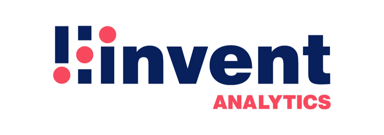Reference Check
In today's talent-driven market, identifying top performers can be a significant challenge. Resumes and cover letters provide a glimpse into a candidate's qualifications, but they can't reveal the whole picture.
This is where reference checks come in – a crucial step in the hiring process that allows you to verify a candidate's qualifications and get valuable insights into their work ethic, skills, and overall fit for the role. ⭐️
What is a Reference Check?
A reference check involves reaching out to a candidate’s provided references to gain insights into their past job performance, reliability, and suitability for the position. It is an essential tool for validating the candidate's resume and interview claims.
Importance of Reference Checks
Think of reference checks as a background check on a candidate's professional history. Here's why they're important👇:
- Verify Information: Resumes can be overstated. Reference checks allow you to confirm a candidate's job titles, dates of employment, and responsibilities.
- Assess Skills and Performance: Past employers can provide valuable feedback on a candidate's strengths, weaknesses, and how they performed in similar roles.
- Predict Future Success: A candidate's past behavior can be a good indicator of their future performance.
- Reduce Hiring Risks: Hiring the wrong person can be costly. Reference checks can help you weed out candidates who might be a bad fit culturally or have a history of performance issues.
Benefits of Reference Checks
There are several benefits to conducting reference checks:
- Improved Hiring Decisions: Reference checks can help you identify qualified candidates who are a good fit for your company culture.
- Reduced Turnover: Well-informed hiring decisions can lead to lower employee turnover, saving time and resources.
- Increased Productivity: Hiring the right people can enhance team morale and overall productivity.
- Reduced Risk of Legal Issues: Reference checks can help uncover potential red flags that could lead to legal issues down the road.
How to Conduct a Reference Check
Here's a step-by-step guide to conducting effective reference checks:
- Get Written Consent: Before contacting references, obtain written consent from the candidate authorizing you to speak with their former employers or colleagues.
- Identify References: Ask the candidate to provide a list of references, including their contact information and a brief explanation of their relationship (e.g., previous manager, colleague).
- Prepare Questions: Alter your questions to the specific role and the candidate's experience.
- Schedule Meetings: Contact references and schedule a convenient time to speak. Be prepared to answer any questions they may have about the position and the candidate.
- Take Detailed Notes: During the call, actively listen and take detailed notes on the reference's feedback.
Reference Check Guidelines
By following these guidelines, you can ensure your reference checks are conducted effectively, ethically, and legally.
- Develop a Reference Check Policy: Create a company policy outlining your reference check process.
- Train HR Staff: Train HR professionals on conducting reference checks properly.
- Stay Up-to-Date: Keep yourself informed about any changes in reference check laws.
Reference Check Questions
The key to a good reference check is asking the right questions. Here are some examples to get you started 👌:
Job Performance: Ask the reference to describe the candidate's strengths and weaknesses specifically related to the role they are applying for.
Skills and Abilities: Instead of a generic rating, inquire about specific skills relevant to the position.
Work Ethic: Move beyond a simple yes or no by seeking specific examples of the candidate's work ethic.
Reason for Leaving: Phrase the question to gain objective insights without prying into personal details.
Eligibility for Rehire: Frame the question to understand the reference's overall impression of the candidate.
Sample Reference Check Questions
In your experience working with [candidate's name], what were their most valuable contributions in a similar position? Were there any areas where they could have improved?
How would you assess [candidate's name]'s proficiency in [relevant skill]? Can you provide an example of how they used this skill effectively?
Can you elaborate on [candidate's name]'s reliability and dependability? Can you share an instance where they demonstrated these qualities?
Can you tell me why [candidate's name] left your company?
Considering [candidate's name]'s qualifications and performance, would you be comfortable rehiring them for this position or a similar one?
Remember:
- Always tailor your questions to the specific role and the candidate's experience.
- Focus on obtaining objective and verifiable information.
- Maintain a professional and respectful tone throughout the conversation.
- Stay within legal boundaries and avoid discriminatory questions related to race, religion, age, etc.
Additional Reference Check Questions
Here are some additional sample reference check questions you can use to tailor your approach:
- How well did [candidate's name] collaborate with others?
- Can you describe [candidate's name]'s communication style?
- Can you share an example of how [candidate's name] solved a problem at work?
- Did [candidate's name] have any leadership responsibilities? If so, how did they perform?
- How would you describe [candidate's name]'s approach to decision-making?
Reference Check Template Form
Using a standardized reference check form can help maintain consistency and ensure you gather all relevant information. Here are some key elements to consider including 📌:
- Candidate Information: Name, position they are applying for, etc.
- Reference Information: Name, title, company, contact details, relationship to candidate.
- Reference Check Questions: List of questions you plan to ask.
- Reference Feedback: Space to record the reference's responses and key takeaways.
Tip: Consider using online reference check software for a more streamlined process.
Reference Check Best Practices
Here are some best practices to ensure your reference checks are effective and legally compliant 👇:
Get informed consent. Always obtain written consent from the candidate before contacting references.
Focus on job-related information. Stick to questions that are relevant to the specific role and the candidate's qualifications.
Maintain confidentiality. Keep all reference check information confidential.
Be objective and respectful. Maintain a professional demeanor throughout the reference check process.
Use a standardized process. Develop a consistent approach to reference checks, including using a reference check form.
Document everything. Keep detailed notes of your conversations with references.
Legal Aspects of Reference Checks
There are some legal considerations to keep in mind when conducting reference checks:
- Defamation Laws: Avoid making false or misleading statements about a candidate.
- Anti-Discrimination Laws: Do not ask questions that could be construed as discriminatory based on race, religion, age, etc.
- Reference Check Laws: Laws regarding reference checks can vary by location. It's advisable to consult with your HR department or legal counsel to ensure compliance.
Reference Check Letter
While reference checks are typically conducted verbally, there may be situations where a reference check letter is requested. This could be the case if the reference is unable to speak by phone or prefers written communication.
Important: If you choose to provide a reference check letter, make sure that it is factual and avoids any potentially discriminatory statements. ⚖️
How to Write One
- Introduction: Explain the purpose of the letter.
- Details: Provide the candidate’s name and position applied for.
- Questions: List the specific questions you need answered.
- Thank You: Express gratitude for the reference’s time and assistance.
Automated Reference Check
There are software solutions available that can automate some aspects of the reference check process.
While traditional reference checks involve manual tasks like scheduling calls and chasing down responses, Applicant Tracking Systems (ATS) like Hirex can significantly improve efficiency.
Hirex offers a streamlined reference check module that automates several aspects of the process, allowing you to effortlessly schedule calls, simplify reference requests and consolidate feedback management.
Reference checks are an indispensable part of the hiring process, providing valuable insights into a candidate’s past performance and potential fit within the company. By following best practices and legal guidelines, employers can make more informed and confident hiring decisions. ⭐️
Get a demo
- Quickly find top candidates with smart application management
- Improve team collaboration using built-in communication and workflows
- Offer a smooth candidate experience to strengthen your employer brand
- Count on 24/7 support for a hassle-free hiring process
- Quickly find top candidates with smart application management
- Improve team collaboration using built-in communication and workflows
- Offer a smooth candidate experience to strengthen your employer brand
- Count on 24/7 support for a hassle-free hiring process
"We truly felt the speed difference. Everything was smoother, and candidate feedback was much more positive. It made our jobs easier."

Trusted by 100+ teams
Get Informed,F.A.Q.
Revolutionize your hiring process with our transformative Applicant Tracking System (ATS.)
Suggested keywords
What is Cultural Fit?
Let's talk numbers - 89% of employers put cultural fit at the top of their hiring checklist. Pretty huge. But wait a second... what exactly does cultural fit mean in today's fast-moving workplace?The ...
Employee NPS Benchmarks
An Employee NPS benchmark is basically a way to see how your company’s employee satisfaction stacks up against others. It helps turn your eNPS score into something useful by giving it context. 📌You'r...
Salary Benchmarking
Salary benchmarking is basically figuring out if what you're paying your team makes sense compared to what others are offering for similar roles. It’s like checking the going rate before you buy somet...















